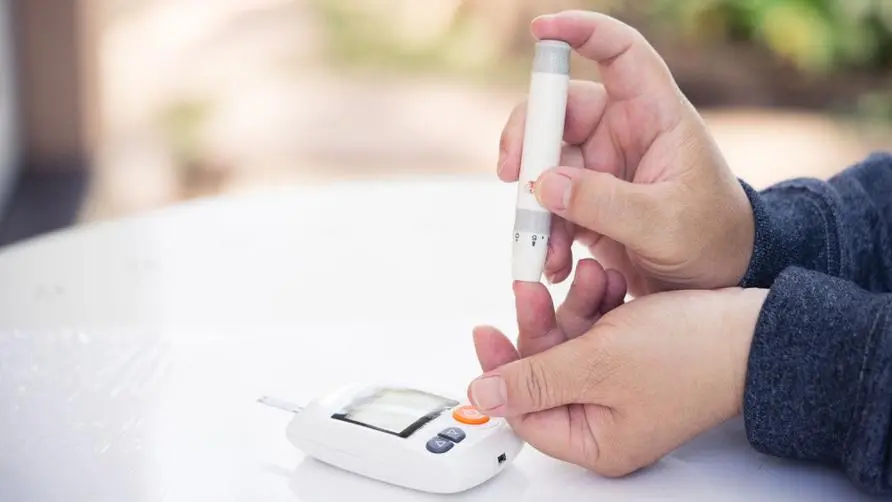Is drinking coffee healthy? What are the advantages and disadvantages? Can it help prevent cancer, reduce fat and reduce the "suicide rate"?

Is drinking coffee healthy? It has always been a controversial topic, but with the increase in research data, scientists believe that the benefits and disadvantages of drinking coffee are becoming more and more clear. A professor at Harvard Medical School published a paper stating that, generally speaking, there is a positive correlation between drinking coffee and reducing mortality and cancer risks.
Does drinking 3-5 cups of coffee a day reduce overall mortality?
Walter C. Willett, a professor at Harvard Medical School, and a Harvard research team published a comprehensive analysis paper in the New England Journal of Medicine, sorting out coffee-related health research results. The paper believes that the extension of the follow-up time of the subjects and the accumulation of various prospective data have shown that coffee has gradually transformed from being considered a carcinogen to a potentially healthy dietary choice.
The paper mentioned that consuming 3-5 cups of coffee a day is considered to be effective in preventing several chronic diseases. Among them, the most convincing data comes from population surveys in Japan, the United Kingdom, and the United States. A large review in 2019 showed that consuming up to eight cups of coffee per day can reduce overall mortality. And regardless of the type of coffee beans or whether there are individual genetic differences, they all have the same effect.
Can drinking coffee also reduce diabetes? Is it best to drink it at noon?
Diabetes is one of the most prevalent chronic diseases today. Previous literature has mentioned that drinking one cup of coffee a day can reduce the incidence of diabetes by 7%. Conversely, individuals had an increased risk of type 2 diabetes within 4 years of stopping drinking coffee. The study suggests that drinking coffee at lunchtime may have the best protective effects on blood sugar and the body.
Why caffeine can help reduce diabetes risk Most previous studies believe that caffeine can reduce insulin resistance and improve glucose tolerance. Also, obesity is associated with blood sugar problems. Drinking coffee has been found to help improve liver function, aid fat metabolism, and help reduce body fat mass.
Marilyn Cornelis, professor of nutrition at Northwestern University Feinberg School of Medicine, said that one of the biggest advantages of caffeine is that coffee beans contain polyphenols, especially chlorogenic acid among polyphenols, which has various health benefits. Polyphenols can help control blood sugar and may be the link between coffee intake and a reduced risk of diabetes.
Can coffee help protect your heart? Is the stroke reduction effect not as good as expected?
Is drinking coffee more likely to cause heart disease? A review of research found that drinking 3-5 cups of coffee a day can reduce the risk of cardiovascular disease, and people who have the habit of drinking coffee are also more likely to reduce the chances of coronary heart disease, heart failure, and atrial fibrillation.
Because caffeine can stimulate the central nervous system and cause heart palpitations, many people believe that drinking coffee can increase blood pressure. However, a review of research points out that the impact of drinking coffee on blood pressure is unexpectedly positive. Chlorogenic acid may be one of the reasons, as it can lower systolic and diastolic blood pressure, thereby reducing the risk of hypertension.
However, there is no clear evidence yet whether coffee can reduce the risk of stroke. A 2014 meta-analysis found that drinking coffee was not associated with a reduced risk of stroke. Another recent data analysis of 2.4 million participants pointed out that people who drink 3-4 cups of coffee a day reduce the risk of stroke by about 21%.
Does drinking coffee significantly reduce the risk of liver cancer? Helps prevent cancer?
Another thing about coffee that excites scientists is that various statistical studies show that coffee intake may “reduce the risk of cancer.” A 2017 study by Professor Willett and colleagues showed that when caffeine intake is increased, the risk of liver cancer will be significantly reduced. This is also the most direct relevant literature that Professor Willett believes that coffee is beneficial to health. Additionally, coffee consumption, regardless of whether it contains caffeine, has been shown to reduce the incidence of endometrial cancer.
In addition, other less direct negative correlation studies indicate that coffee intake can reduce the risk of breast cancer (hormone-negative breast cancer, or breast cancer after menopause), skin cancer (melanoma), basal cell carcinoma, oropharyngeal cancer, and colorectal cancer. , high risk of prostate cancer.
Drinking coffee alleviates mental health and reduces suicide risk by 45%?
Caffeine stimulates the central nervous system, so coffee drinkers experience increased concentration, greater motor control, and heightened alertness. But drinking coffee has not been shown to improve cognitive function.
For the average person, coffee boosts mood, thereby helping to alleviate mental health issues. Regardless of the amount of daily coffee intake, it can reduce the occurrence of depression by about 30%. One report reviewed specifically in the paper found that drinking more than 2 to 3 cups of coffee per day was associated with a substantial reduction in suicide risk of approximately 45%, compared with drinking only one cup of coffee per week or less.
Can changing serotonin and dopamine activity reduce liver fibrosis?
Caffeine is also believed to alter the activity of serotonin and dopamine. In addition to affecting short-term mood, it also has a protective effect on various neurodegenerative diseases, such as reducing or delaying the occurrence of Alzheimer’s disease or reducing the risk of Parkinson’s disease.
However, decaffeinated coffee did not achieve significant benefits in preventing Parkinson’s disease and the risk of suicide.
In 2017, there was a large review of studies on the various health benefits of coffee. This study found that coffee intake has the highest positive correlation with liver health. Increasing your coffee intake by 2 cups a day can reduce the incidence and mortality of alcoholic cirrhosis.
People who have the habit of drinking coffee can also reduce the possibility of non-alcoholic fatty liver disease. For people who already have fatty liver disease, coffee can help prevent liver fibrosis and slow down the progression of advanced hepatitis C.
Coffee is too amazing? Scholar: Seeds have high antioxidant and anti-inflammatory content
Is coffee really so magical? The research team believes that coffee intake can improve human health, as various research data gradually form a consensus. In fact, coffee contains more than 1,000 chemical compounds. Which component causes these effects requires more in-depth analysis in the future.
Professor Willett believes that coffee beans are a kind of “seed”, and the function of the seed is to protect the growth of the germ, so it usually has many antioxidant and anti-inflammatory ingredients, and the content of polyphenols and other antioxidants in coffee seeds " “Abnormally high”, which may be the reason why it brings various health benefits, but there is no absolute conclusion yet.
Not everyone can drink coffee. Will drinking it cause heart palpitations and glaucoma?
In addition, coffee intake is not completely harmless. Excessive consumption of coffee may increase the risk of glaucoma. Sudden discontinuation of coffee may cause withdrawal symptoms, affecting the stability of blood pressure and heart rate, leading to anxiety, irritability, and decreased sleep quality. In addition, caffeine has been linked to underweight babies and miscarriage, so pregnant women need to avoid drinking coffee.
Finally, remember that no matter how healthy coffee is, you should drink it the right way. It is best to avoid coffee containing high fructose syrup. Professor Willett pointed out that it is still unclear whether the health effects of coffee on specific groups, such as whether it will affect the brain development of children, are not recommended. If you are an average adult, should you worry about various health problems caused by drinking coffee? Willett believes that a small amount of coffee consumption can be reassuring.
source:





